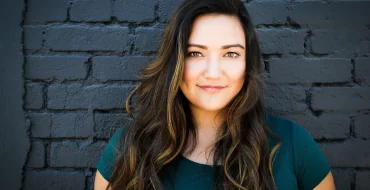
Interview: DC considers ‘minimum income’ proposal
Minimum Income in Conversation:
Interview with Katrina Forrest, Legislative Director for DC Councilmember Grosso
Elyse Mark, researcher at the East West Center in Washington
Mark is a recipient of the Critical Language Scholarship Alumni Development Fund for the 2019 UBI Taiwan International Summit.
This interview was produced as part of a series for the 2019 Summit
The 2018 Economic and Policy Impact on Minimum Income in DC was produced at the request of Councilmember David Grosso’s office, in conjunction with Chairman Phil Mendelson of the Council of the District of Columbia, the legislative arm of local government in DC. Councilmember Grosso is the chairperson of the Committee on Education, and sitting member of the Health, Labor and Workforce Development, Human Services, Government Operations Committees, as well as the Committee of the Whole. On March 13, I sat down with Katrina Forrest, Legislative Director for Councilmember Grosso, to learn more about the Council’s interest in minimum income.
EM: Thanks for being here today, Katrina. This policy analysis was the result of a joint request by DC Councilmember David Grosso and Chairman Phil Mendelson, correct? How did the Council initially get interested in minimum income?
KF: This report was actually born out of the conversation around increasing DC minimum wage in 2016. Legislation was going through the Council to increase minimum wage up to $15, and at the time Councilmember Grosso was frustrated—he felt like $15 was insufficient to live comfortably in the District of Columbia, and he felt like the conversation was very myopic. He had an interest in some of the [minimum income] pilots happening in Stockton (CA), in Finland, and in Canada, and he wanted to explore what that might look like for the District.
EM: How difficult was it getting this impact statement proposed? This is a relatively new type of report for the Council, correct?
KF: Yes, this was only the second economic impact project that office completed; the first was around universal paid leave in DC in 2015. That legislation was eventually passed as the Universal Paid Leave Act.
EM: What was your main role in this minimum income project?
KF: I drafted the amendments that we ended up offering, requesting that a study be completed”
EM: Once it was published, what was reception of the impact statement like among council members and the public?
KF: I think it was generally positive for the Council. Every year, the Council goes away for a retreat, and during last year’s retreat the budget office presented the findings of this report. Implementing a minimum income looks…quite expensive, but I think the conversation now is changing nationally about UBI, so they’re becoming more receptive.”
EM: And the public?
KF: Unfortunately I’m not sure minimum income is something the public knows a great deal about. Initially, when we had a debate on the dais about the need to study minimum income, several members of the public commented saying, “This is going too far,” or, “Your boss should stay away from that.” As the rest of the world evolves on this conversation, I imagine the District will as well.
EM: What’s the interest level of the Council like today? The report was published around a year ago, have there been any recent developments on minimum income in DC?
KF: Towards the end of last year, Karl Widerquist reached out to us (and he’s actually cited
throughout the impact statement), wondering what it would take to develop a
ballot initiative to gauge public support [on minimum income]. We had that
conversation in October 2018, so a public interest poll in DC is potentially in
the works.
EM: The impact statement hones in on three types of income supplements/benefits – minimum income via negative income tax, guaranteed minimum income, and universal basic income. Of these, UBI is dismissed as prohibitively expensive and guaranteed to cause widespread workforce drop out. Given that experimental data on UBI is so slim – was there possibly a political motivation behind this dismissal of UBI?
KF: That’s an interesting question. What I will say is generally our Budget Office tries not to make political statements, so if this is the conclusion they came to, it was based on their research and what was been available elsewhere. As you said, there’s not really a robust sample size, because most of the work on UBI has been done on small pilot programs. They had to rely and extrapolate from that, but I don’t know that their intention was to dismiss UBI as completely nonviable.
EM: The report leans toward simulation 1, using a negative income tax to raise household income to 100% of the federal poverty level, as a good first step. Was this or any of the other results of this report surprising?
KF: What was surprising to me, and I think to my boss as well, was the fact that as a progressive city we do afford a number of programs that, if everyone who was eligible took full advantage, would make people be far more comfortable than we imagined. That fact was interesting to see represented.
EM: Given that finding, has there been any talk of promoting public education about these benefits?
KF: Yes. Part of that is better oversight of our agencies to learn what they are doing to make people aware of programming. Actually, this time of year we are in our oversight phase, bringing all of our agencies together before the Council and planning new budgets for FY 2020.
EM: Are there any particular agencies you’re focused on this year, to raise public awareness of the social safety net?
KF: For the Councilmember, the biggest one is the Department of Human Services, and as a member of the Committee on Human Services, he will be able to ask them some tough questions on budget oversight in the next couple of weeks.
EM: Finally, Councilmember Grosso is up for reelection in 2020. If he runs for office again, will minimum income be part of his platform?
KF: That’s an interesting question, and assumes he will run for reelection—I am not privy to that decision. But I imagine if he does, minimum income certainly will be part of his platform.




